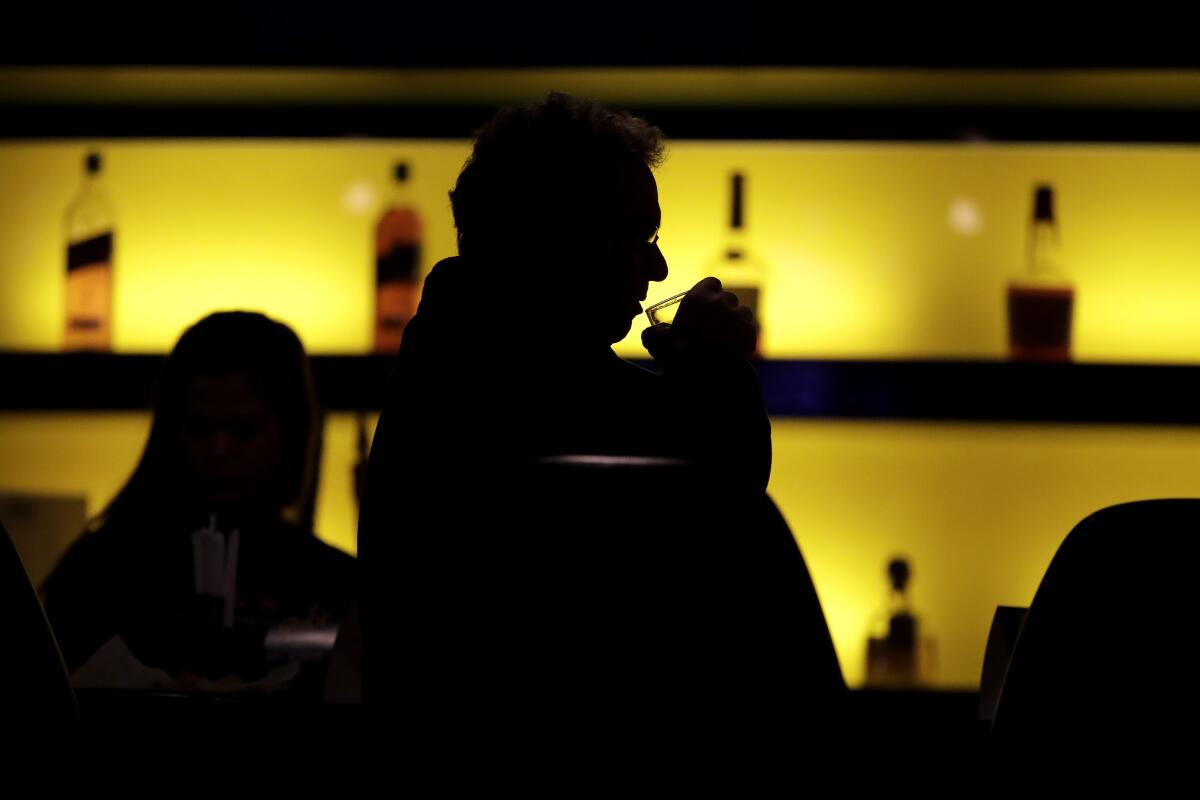Newsletter: From one alcoholic to another this grim holiday season

Good morning. It is Saturday, Dec. 7 — 83 years to the day since Pearl Harbor was attacked. Let’s look back at the week in Opinion.
In this time of uncertainty and holiday-induced loneliness, I believe this message is important to hear for a few million of us who might be quietly struggling now:
I’ll say it right here — I am an alcoholic. Yes, the person trusted with this digital real estate one day a week cannot be trusted with any liquid stronger than 1 proof. I am in recovery and have been for more than 10 years — meaning I haven’t consumed alcohol since 2014, nor have I willingly taken mind-altering substances in that period (willingly, because you don’t have much choice about going under for surgery). Stone-cold sober as I may be, I am still an alcoholic, always guarding against relapse.
And that vigilance must always remain, no matter the result of a heartbreaking election, the boozy conviviliaty of holiday parties (or the loneliness just as common this season), the turmoil inflicted on a workplace or the sudden illness and death of a parent.
Life does not care about your sobriety. So you must, no matter what.
And right now, the caring might be a little harder, as I noted in my piece on our alcohol-infused culture making life difficult for people in recovery this time of year. You might quietly bristle when someone says, as well-meaning “normies” tend to do during difficult times, “Pour yourself a really stiff drink” (I know I’ve bristled a lot lately). You might list every reason besides addiction when a holiday party reveler asks why it’s water and not wine in your glass.
So, do what works. I find it soothing to talk frankly about my alcoholism (hence this newsletter). There are recovery group meetings all over Los Angeles, where you’ll hear plenty of stories about people feeling lonely during the holidays and needing a place to belong. You can also call the federal government’s addiction hotline.
For the estimated 20 million to 30 million adults in the U.S. in addiction recovery, it helps just to know how many people can relate to their struggle. In that regard, and especially during a time of widespread fear and loneliness, I hope this newsletter helps.
How Democrats could use the lame duck to save medication abortions. The 1873 Comstock Act was passed to prevent the shipment of obscene materials; it also prohibits mailing anything meant to prevent conception or end a pregnancy. UC Berkeley School of Law Dean Erwin Chemerinsky says Democrats in Congress should try to repeal this law while they still hold the Senate majority and President Biden is in office.
Christmas is coming, and California is still counting ballots. Is that a problem? You might remember pumpkins and trick-or-treating from the time you cast your ballot; if you live in California, you’re seeing Christmas decorations as the state finishes its tally. Editorial writer Carla Hall says this isn’t a bad thing: “The painstaking process of collecting and checking these ballots speaks both to election integrity and to giving voters access and opportunities to vote.”
Can California fix the disconnect between public education and the modern workforce? Sacramento Mayor Darrell Steinberg, a former state Senate pro tem, says reforming public education isn’t just about adding auto shop back to the high school curriculum. Rather, “we must design and teach core academic subjects in ways that are relevant and connected to high-growth job sectors.”
Enjoying this newsletter? Consider subscribing to the Los Angeles Times
Your support helps us deliver the news that matters most. Become a subscriber.
The U.S. betrayed its climate leadership, and the world is already suffering. Last month, voters placed control of the entire federal government in the hands of oil-friendly Republicans. Later, the U.N. global climate summit ended in extreme disappointment, with the participants unable to agree on phasing out fossil fuels. Still, greenhouse gas emissions must drop precipitously, says scientist Michael E. Mann, because “there is simply no other choice in the face of our climate reality, no matter how much the incoming U.S. administration tries to deny it.”
Palm Springs brutally displaced hundreds. They’re finally getting a measure of justice. In the 1950s and ‘60s, the mostly Black and Latino area of Palm Springs known as Section 14 was brutally cleared in what a state report later called “a city-engineered holocaust.” Now, the city is offering hundreds of survivors a settlement of $5.9 million. Although this comes late, this action is “particularly commendable at a time when making amends for past racial injustices is hardly in vogue,” says The Times’ editorial board.
More from opinion
From our columnists
- Jonah Goldberg: Why the American media and their critics won’t stop telling the same lie
- Robin Abcarian: President Biden’s pardon of his son Hunter is understandable. It’s also unforgivable
From guest contributors
- Portrait of a quiet marriage, or of America’s simmering tensions?
- Trump promised to raise taxes, but Biden and Congress could tie his hands
- Op-comic: A Palestinian, an Israeli and a path to peace
Letters to the editor
- Jack Smith’s cases against Trump are done. What now with the evidence?
- “Solar glut” isn’t a solar problem — it’s a transmission and battery problem
- Mika Brzezinski and Joe Scarborough met with Trump. Why is that a bad thing?
Stay in touch.
Enjoying this newsletter? Consider subscribing to our other newsletters and to The Times.
As always, you can share your feedback by emailing me at [email protected].
A cure for the common opinion
Get thought-provoking perspectives with our weekly newsletter.
You may occasionally receive promotional content from the Los Angeles Times.




